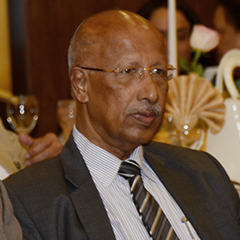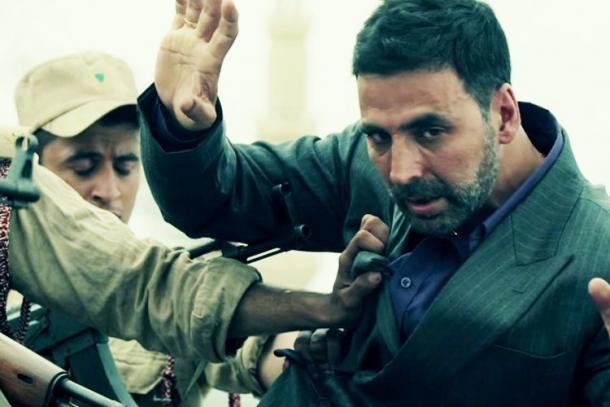The example of empire that I thought of from modern times comes from a Hindi movie called Airlift, which, although not completely accurate, is based off of real life events. This movie reminded me of empire because of the greed, oppression, and corruption that the main character has to face because of one nation attempting to be in control of another one.
This film takes place during the Invasion of Kuwait where Iraq accused Kuwait of stealing their oil, which then lead to Iraq occupying Kuwait for seven months, followed by America getting involved and setting fire to a large number oil wells in Kuwait. This movie focuses particularly on the Indians who were staying in Kuwait during this time, and their attempts to go back to India in order to escape this war. Initially the Indian government attempted to evacuate citizens but had difficulty getting approval from the exiled Kuwaiti government and the UN. However with the help of a few brave individuals such as Mathunny Mathews, over 100,000 people were airlifted from Kuwait back to India over the course of 63 days.

The movie itself follows a character who is based off of Mathews, a businessman named Ranjit Katiyal who has settled in Kuwait with his family. He hears news that Kuwait has been overrun by Iraqi soldiers who are killing people without mercy. Ranjit, now surrounded by death, then has to deal with the stress of making sure his family is safe while finding a way to get out of Kuwait, and ends up being the leader of a camp that is housing 500 Indians. This character goes through tremendous character growth, transforming from a pampered, selfish man to one who is willing to put the safety of others over his own, ultimately ending in a successful airlift. One can see the events of this movie as the cost of empire, as well as seeing the main character as someone who, through these hardships, gains the traits of a Virgilian hero.

The traits of an empire that was discussed in the beginning of this quarter is what reminded me of this movie. The class characterized empires as mainly being one nation that is in control of other nations, and often bringing greed, cultural erasure, corruption, and oppression along with it. These traits are present in the film Airlift, particularly when viewing Iraq as attempting to be an empirical force over Kuwait. Once Iraq realized they would benefit more and have more control by occupying Kuwait, that is exactly what they did. It was an act of self interest in order to bring “glory” to their own nation. Cultural erasure was depicted in an interesting way through this movie, because they managed to show this erasure serves to divide and conquer, a common tactic used to keep people under oppressive groups of power. This film made it clear that in front of Iraqi soldiers, Indians had to completely separate themselves from their Kuwaiti identity. The main character for the most part did not consider himself to be Indian, but the second that war broke out, in order to survive he could not continue living with this cultural identity. Those who could not prove they were not Kuwaiti were killed almost instantly, as proved by Ranjit’s driver, who was Indian, but was killed simply because he was not able to prove it to the soldiers satisfaction. In fact, this act of killing was more about asserting power over anyone who could be considered “other” rather than having any kind of reason or tactic behind it.

However, this films portrayal of this aspect of empire is interesting because it also manages to show how those who should be working together towards a common goal can end up fighting themselves. Once Ranjit has set up the camp filled with Indians seeking refuge, one of the problems he faces is finding out that someone has been keeping a Kuwaiti woman in order to keep her from getting killed. Although everyone who is not an Iraqi soldier is at risk in this situation, once people find out that she cannot speak Hindi they immediately become suspicious of her. Some call to throw her out in order to keep from endangering themselves further which then causes infighting. This type of fighting is useful to those trying to take power because it reduces the amount of power that the oppressed has. In fact, this was a tactic used by slave owners in white people to keep white indentured servants from identifying with any of the black slaves.
The main character by the end of the film also embodies many traits that can be seen in a Virgilian hero. At the beginning of the movie he is seen as being short tempered, inappreciative of his family, and focused on the material pleasures of life. He frequently yells at his wife and does not care for others past his family. However, once he sees the impact that the death of his driver has on the people who loved him, he slowly becomes to change by realizing other people’s worth apart from what they can do for him. Once he realizes that he has become responsible for the safety of hundreds of Indians and even a Kuwaiti, he learns how to hold his tongue in order to get the end result that he needs, as well as becoming more compassionate and appreciative (some of which is shown through a cute song/montage in the film). He learns to prioritize others lives over his own, as can be seen by his willingness to take sole responsibility over the Kuwaiti woman. He also learns the importance of his family, specifically that his wife is not someone who should be dismissed, but someone who could help him. These traits that he develops shows a sense of obligation to his family and his nation, as well as a sense of moral courage and a willingness to strive tirelessly towards a goal. These traits are also known as pietas, virtus, and labor, and are the traits that make up a Virgilian hero.